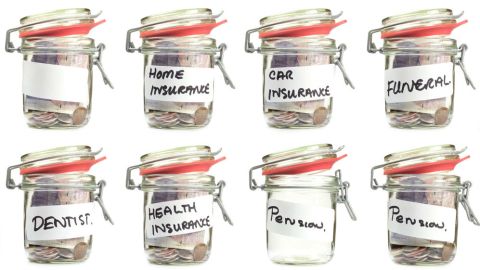Reframing Savings

What’s the Big Idea?
At some point in our lives, most of us realize that we can no longer store our cash in a piggy bank or under the mattress – opening a bank account is necessary. Opening a bank account can feel like opening a door to a new, foreign world; for the untrained and unfamiliar customer, just what to do with those first checks and deposit slips is sometimes unclear.
The lack of clarity so many new account users feel is often accompanied with a sense of purposelessness. “Why did I open a bank account in the first place?” To save, yes. But what does this really mean? Fortunately, a bit of strategic thinking and reframing can help us maximize the benefits of personal bank accounts.
Although it might seem as if the biggest hurdle is opening the account, it is in fact the continued and diligent practice of saving — crafting a savings plan and following through with regular savings deposits. With shiny objects, tasty treats, clothing sales, and daily deals everywhere we turn, the habit of saving (boring) can easily take a backseat.
What’s holding us back from stashing small, consistent sums and reaping the slow, steady, incremental rewards? The enlightening field of Behavioral Economics can help shed some light on the issue. Behavioral economists have identified certain conditions and stimuli, or lack thereof, that prevent people from saving money.
What Economists Have Found
According to research by Rozin and Royzman, people tend to overestimate the likelihood of positive events and, likewise, underestimate the likelihood of negative events. This tendency might explain why some people buy lottery tickets, despite slim odds of winning, rather than saving their money. What’s ironic about this is that if people would put the money they spend on lottery tickets into longer-term savings and investment vehicles, and if established such habits at a young age, they’d be millionaires by retirement age. Compound interest, unlike lottery tickets, holds the power of the guarantee.
Another example of how this irrational “negativity bias” we have relates to savings can be seen in thinking about the likelihood an average working person will lose their job. Most people with access to the news are aware of the record amount of unemployment and bleak job forecasts around the world. Despite this, so many folks still fail to keep an emergency cash reserve as a back-up in the event that they lose their source of income. Those people are underestimating the chances of a negative event (losing their job) occurring.
What’s the Significance?
When it comes to dealing with temptations, we often tend to choose immediate gratification over a long-term benefit. This tendency can make it difficult to manage a budget and may lead to overspending. You can’t wear $10, but you can certainly wear a cool new shirt. It can be hard to avoid that sort of temptation—but it’s not impossible.
Start by reframing the purchase. Not only is that shirt costing you $10, it’s also costing you an opportunity to buy something of greater use and value later (i.e. a new car, better apartment or home, or the ability to move out of your parents’ house). Ask yourself: what do you value, how do you really want to spend your money?
Here are some tips to avoid temptation and become a better saver:
Tips for Beating the Temptations
1. Use more cash. Credit and Debit card use is too easy and too painless. We spend less when we see the physical money leave our possession.
2. Make it a point to check online before buying. Check for the best price online before buying—and put off buying until you’ve checked. Chances are you’ll forget about it anyway and never buy that item that caught your eye. This is a great way to separate needs from wants. IF it’s a want, chances are good that you’ll forget about it. If it’s a need, you won’t.
3. Breathe. Our irrationality is at its craziest when we’re stressed out. Impulsive and compulsive spending are saving’s worst enemies. They’re also antithetical to what most of us really want: freedom. Material possessions are good insofar as they help us be who we want to be and do what we want to do, but this requires that we spend with intention. Until we’re certain we want to spend, the best thing to do is to save.
Ryan Shaw contributed to this post.
Image courtesy of Shutterstock/olavs.





